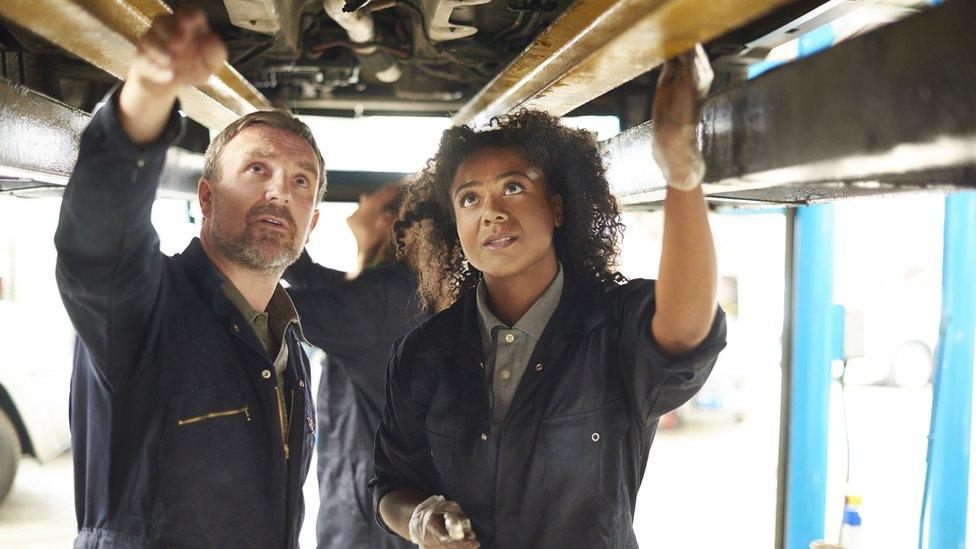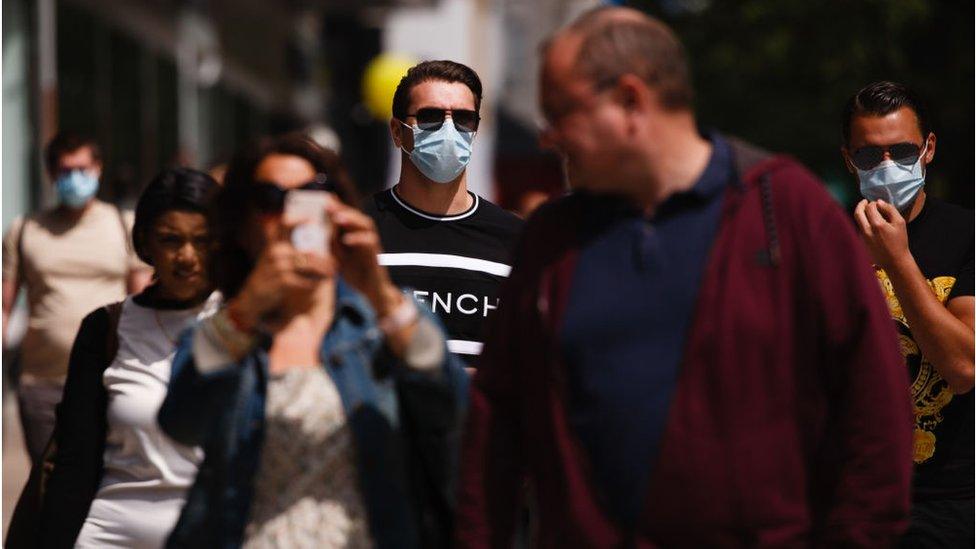Sunak to give firms £1,000 cash bonus to hire trainees
- Published
- comments

The government is pledging to provide 30,000 new traineeships to get young people in England into work, as fears about mounting unemployment increase.
Traineeships provide classroom-based lessons in maths, English and CV writing, as well as up to 90 hours of unpaid work experience.
Under the £111m scheme, firms in England will be given £1,000 for each new work experience place they offer.
Scotland, Wales and Northern Ireland will receive £21m for similar schemes.
The additional funding for traineeships is set to be announced by the Chancellor Rishi Sunak on Wednesday when he will unveil an economic plan to deal with the aftermath of the coronavirus crisis.

What is a traineeship?
A traineeship is a course that includes a work placement
It can last from six weeks up to six months
Traineeships are aimed at 16 to 24-year-olds in England
Trainees may complete a maximum of 240 hours of work experience over six months
Providers should offer an interview for an apprenticeship or job, if available at the end of the scheme
Employers are not required to pay trainees for a work placement, unlike apprenticeships where the minimum wage rate is £4.15 per hour., external
On an apprenticeship, a person is employed to do work while studying for a formal qualification, usually for one day a week, either at a college or training centre over a number of years.
Source: Gov.uk website, external

Businesses have been hit hard since the UK went into lockdown on 23 March, and even though restrictions are gradually being eased, consumer demand remains depressed.
As a result, companies with a presence across the UK have revealed thousands of staff cuts in the past week.
"Young people's employment prospects are expected to be disproportionately affected by the economic fallout of coronavirus," the Treasury said in a statement announcing plans to expand the traineeship programme.
Traineeships are intended to get people into their first job after education. They last from six weeks to six months and they are open to people aged between 16 and 24.
"Expanding traineeships will be part of a wider package to support young people and to ensure they have the skills and training to go on to high quality, secure and fulfilling employment," the Treasury said.
Employers must currently offer a minimum of 100 hours of work experience. But the Treasury statement refers to "a high-quality work placement of 60 to 90 hours", which could suggest a new, lesser, commitment for providers.
The expanded scheme will be in place in England from September 2020.
The Treasury said that three quarters of young people who completed a traineeship moved on to employment or further study within a year. In contrast, three quarters of 18-24 year-olds who are not in education, employment or training for three months will continue to be out of work and out of education for a full 12 months, according to government figures.
The number of people starting traineeships has, however, been declining gradually, from a high of 24,100 in 2015-16 down to 14,900 in 2018, according to figures from the Department for Education., external
David Hughes, chief executive of the Association of Colleges, told the BBC's Today programme: "We know that young people get treated very badly in recessions and will be at the back of the queue for jobs.
"What we want is a whole range of actions that the government can take: put money into colleges to give them a chance, incentivise employers to take on trainees, but also take on apprenticeships as well."
He added: "We need really bold action now on both the labour market and on skills."
- Published24 January 2021

- Published1 July 2020

- Published1 July 2020